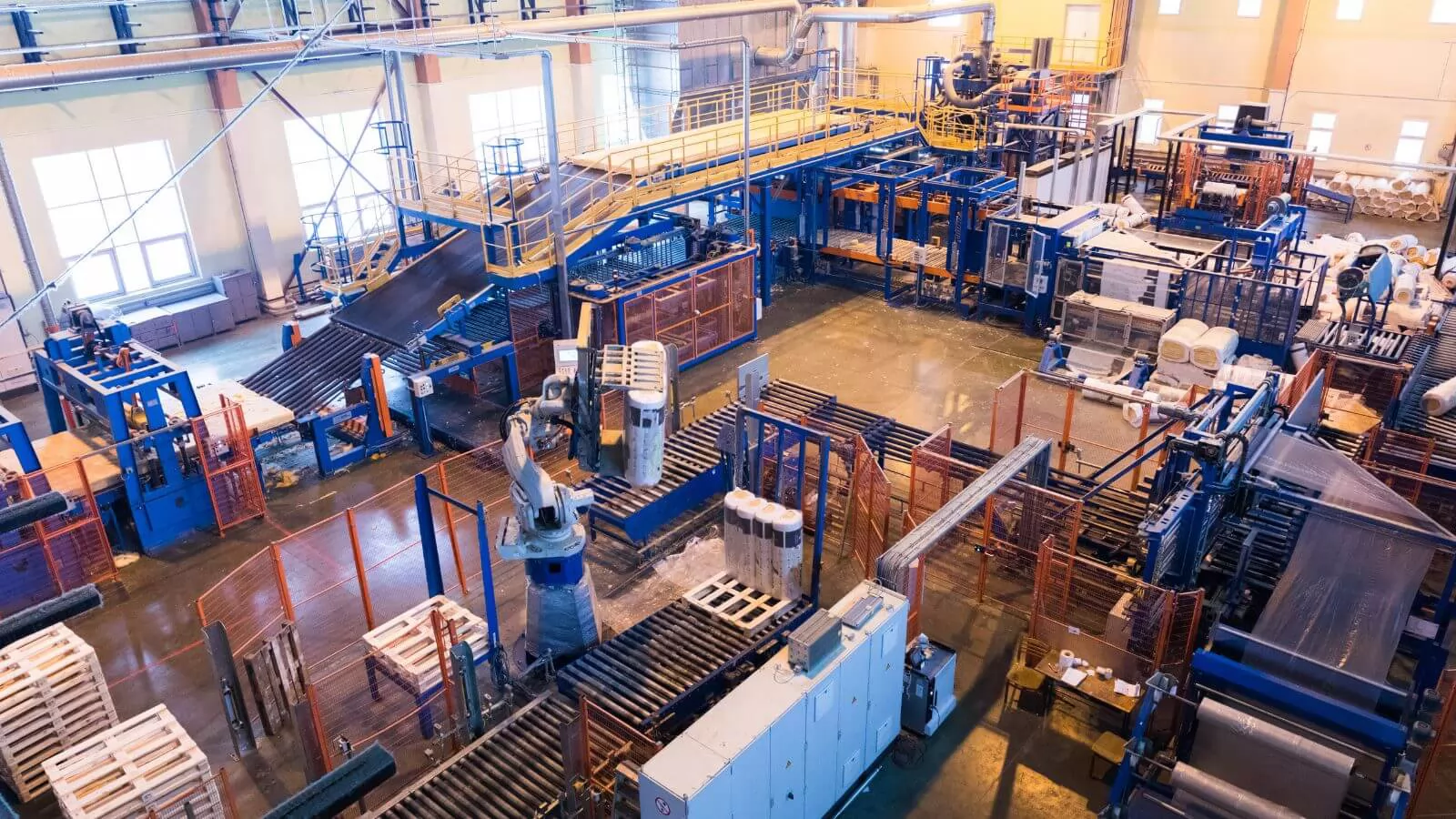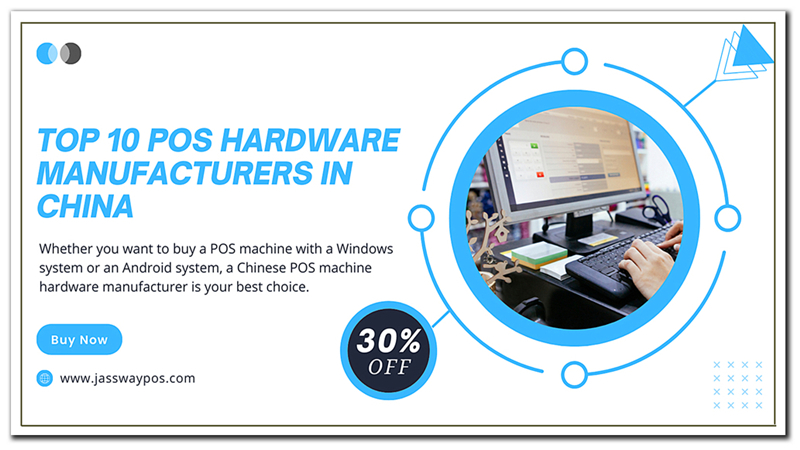



In the dynamic landscape of modern business, kiosks have emerged as transformative tools, revolutionizing customer interactions and streamlining operations. From ordering meals at restaurants to checking in for flights at airports, kiosks have become ubiquitous, seamlessly integrating into our daily lives. However, to fully harness the potential of this innovative technology, a thorough understanding of kiosks is essential.
This comprehensive guide delves into the complexities of kiosks, exploring in detail how they work, their benefits, where they can be used, their peripherals, and more.
List of Best POS Hardware Manufacturers in China |
A kiosk is an interactive tablet or touchscreen computer that allows a customer to access information or services without directly interacting with a person. It has evolved into ubiquitous fixtures in modern society, seamlessly integrating into public and private spaces.
Kiosks have transformed business-customer interactions by boosting efficiency, cutting costs, and improving customer experiences. They allow users to complete tasks independently, eliminating wait times and fostering autonomy. Kiosks can also collect customer data for analyzing behavior and preferences, informing decisions and targeted marketing strategies.

Kiosk software is generally used to lock the device to a single application or program. Digital kiosks usually run on specialized software enabling them to display information and provide users with services. The software is designed in a way that is easy to use, with specific instructions and intuitive navigation.
Moreover, Kiosks often incorporate peripherals to expand their capabilities and cater to specific applications, including a printer, scanner, or camera, which depends on the application’s requirements.
Kiosks, those interactive touchscreens that have become ubiquitous in various public settings, offer a plethora of advantages for both businesses and customers. Businesses can leverage kiosks to streamline operations, enhance customer service, and boost sales, while customers can benefit from convenience, time savings, and privacy.
Revolutionizing Business Operations with Kiosk Integration
Kiosks can significantly reduce labor costs by automating tasks that would otherwise require human intervention. This reallocation of employee resources allows businesses to focus on more complex customer interactions and strategic initiatives. Additionally, kiosks can enhance customer service by providing 24/7 access to information, self-service options, and efficient issue resolution.
Unlocking Sales Opportunities with Kiosk Technology
Kiosks serve as powerful sales tools, enabling businesses to upsell and cross-sell products seamlessly. They also facilitate data collection, allowing businesses to gain valuable customer insights for targeted marketing campaigns. Furthermore, kiosks can streamline operations by automating tasks like order processing, payment transactions, and data collection, leading to improved efficiency and reduced errors.
Empowering Customers with Kiosk Convenience
Customers reap significant benefits from kiosks, starting with time savings. Kiosks eliminate the need to wait in line, allowing customers to complete transactions quickly and efficiently. Their convenient placement in high-traffic areas, such as malls, airports, and train stations, further enhances accessibility. Kiosks also provide privacy, enabling customers to conduct transactions discreetly and securely.
Enhancing Customer Experiences with Kiosks
Kiosks empower customers by giving them greater control over their interactions with businesses. This self-service approach fosters a sense of autonomy and satisfaction, leading to a more positive customer experience. Overall, kiosks represent a win-win situation for both businesses and customers, driving operational efficiency, boosting sales, and enhancing customer satisfaction. As technology continues to evolve, kiosks are poised to play an even more prominent role in shaping the future of customer interactions and business operations.

4.1 Self-Service Ordering and Payment
Kiosks have become ubiquitous in restaurants, fast-food chains, and coffee shops, enabling customers to seamlessly order and pay for their food and beverages without the need for human intervention. This self-service approach expedites the ordering process, reduces wait times, and alleviates pressure on staff, fostering a more efficient and customer-centric dining experience.
4.2 Information Provision and Wayfinding
Kiosks serve as valuable information hubs, providing visitors with comprehensive details about a location, including maps, directions, event schedules, and points of interest. In sprawling complexes like malls, airports, and museums, kiosks act as virtual guides, assisting visitors in navigating effortlessly and maximizing their time.
4.3 Personalized Product Information and Recommendations
Kiosks empower customers to make informed purchasing decisions by providing in-depth product information, including features, specifications, customer reviews, and comparative analyses. Furthermore, they can leverage customer data and preferences to generate personalized product recommendations, enhancing engagement and driving sales conversions.
4.4 Streamlined Check-in and Registration
Kiosks streamline check-in processes for appointments, events, and loyalty programs, reducing wait times and minimizing administrative burdens for staff. Customers can effortlessly check in, register for events, or sign up for loyalty programs, expediting their entry into the desired service or activity.
4.5 Engaging Entertainment and Interactive Experiences
Kiosks transform waiting areas into engaging hubs by offering a variety of entertainment options, such as interactive games, puzzles, and immersive experiences. These engaging distractions captivate customers, enhancing their overall experience and fostering positive brand associations.

The integration of peripherals into kiosk systems plays a pivotal role in expanding their capabilities and aligning them with diverse application scenarios. While some kiosks can operate effectively with a minimalist setup comprising a touchscreen, display, and computer, others necessitate the incorporation of additional peripherals to fulfill their intended purpose and deliver a comprehensive user experience.
Printer: Printers can be used to provide receipts for transactions, tickets for events, labels or badges for identification, as well as coupons and other promotional materials. Thermal printers are often used due to their speed and reliability.
Card Readers: Read magnetic stripe cards, smart cards, or other card types for access control or payment processing.
Cameras: Capture photos or videos for security, identification, or interactive features.
NFC and RFID Technologies: Near Field Communication (NFC) and Radio Frequency Identification (RFID) technologies enable contactless communication between the kiosk and external devices or smart cards. They are commonly used for payment processing, ticketing, or inventory management.
Biometric Scanners: Biometric scanners, such as fingerprint or facial recognition readers, provide enhanced security and authentication features. These scanners can be used for access control, user identification, or transaction authorization.
The kiosk industry is a diverse and competitive landscape, with numerous manufacturers vying for market share. Some of the leading global kiosk manufacturers include:
NCR Atleos: A multinational corporation with a long history in the self-service industry, NCR offers a wide range of kiosks for various applications, including retail, banking, healthcare, and government.
Diebold Nixdorf: Another global player, Diebold Nixdorf specializes in automated teller machines (ATMs) and self-service kiosks for financial institutions, retailers, and other businesses.
Jassway: As one of the top KOISK & KDS manufacturers in China, they focus on R&D, production and wholesale of various KOISK & KDS hardware.
Meridian: Meridian is a self-service industry pioneer committed to developing innovative and total self-service solutions. Leading in innovation and precision since being founded in 1999.

In conclusion, kiosks stand at the forefront of innovation, poised to transform the way we interact with businesses, access services, and engage with the world around us. By embracing kiosks and leveraging their capabilities, businesses and organizations can elevate customer satisfaction, streamline operations, gain a competitive edge, and contribute to a more informed and connected society. As we venture into the future, kiosks will undoubtedly play an increasingly pivotal role in shaping our daily lives and experiences.
Of course, you can also contact us. As an excellent KOISK & KDS manufacturer in China, we can provide you with a full range of services. If you need, please contact us for a quote!
Related content recommendation
.png)










